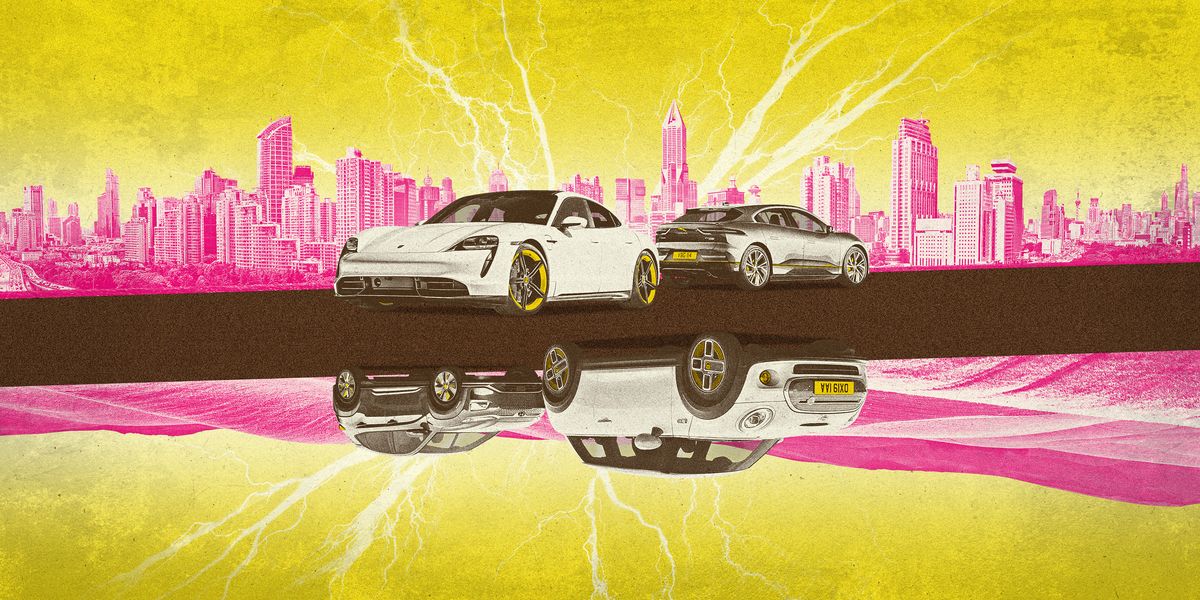Use this quick guide to find the EV with the right efficiency, range, and price for you, from the practical Chevy Bolt to the exotic Porsche Taycan.

www.caranddriver.com
I have linked a recent summary of currently-available EV's in the U.S. Other models are slowly dribbling into the marketplace. Most are priced out of the range of most consumers, although with the combination of the possible (up to) $7,500 tax credit and the fuel cost savings, if your budget for your next ICE car was $X, then you might be able to budge 1.15*X for an EV, provided you are comfortable with your own charging infrastructure where you live.
I'm not sure how the EPA calculates MPGE (miles per gallon equivalent), but it doesn't really matter. The number is there for you to compare one car with another, not to calculate your energy cost, month to month. For most purposes, 100 is "good" and much less than that starts to compromise whether it is beneficial to get an EV at all.
While skeptics abound, there is no question that EV's are LIKELY to be less troublesome and longer-lasting than a comparable ICE car. There is no radiator, no exhaust system, no electronic nannies to keep you from destroying the planet, and so on. Electric motors are, according to many reports, lasting longer than warranted or expected. As the market matures, there will be both OEM's and aftermarket shops that will replace individual dead cells, to spare you the cost of a five-figure replacement cost when the time inevitably comes. Parenthetically, I was in Amsterdam a few years ago, and was surprised to see almost the entire taxi fleet driving Telsa Model S sedans. THEY were reporting battery life of at least 500k km (300k miles), before the fully-charged, indicated range dropped below 80% of new. After that, I understand that it drops rather quickly.
The Tesla Model 3 continues to outshine all other CARS in its class. The price, range, and features are superior to the others, even though there is no longer any tax credit available. The Mustang also looks good, as does the Ionic5. VW is selling a shitload of ID4's in Europe, although there is nothing on the spec sheet that makes the mouth water.
The value of used EV's (almost all Tesla) is artificially depressed by horror stories about the cost of battery replacement, but I suspect that this issue is overblown. If you get a $90k Model S for thirty grand, then have to spend ten thousand replacing the battery, you still have a great car at a great price. And as I say, there is an emerging market of shops who will replace only the dead cells for a fraction of the cost.
One issue that I've wondered about is the issue of TRACTION. A lot of American car buyers, especially in the former snow belt (diminished due to Climate Change) are neurotic about winter driving and believe they need AWD in every vehicle in order to command the road. But I wonder...if you have an EV with the MOTOR over the drive wheels, coupled with good all-season tires and all-speed traction control, that vehicle should do perfectly well in all conditions up to a foot of snow, in which case you should stay home anyway.
While I won't get a vote, I will encourage my wife to trade her 3-series for an EV when the time comes in a year or so.
Any other/conflicting thoughts?



 American auto industry doesn't offer anything in electric/hybrid that I can use.
American auto industry doesn't offer anything in electric/hybrid that I can use.